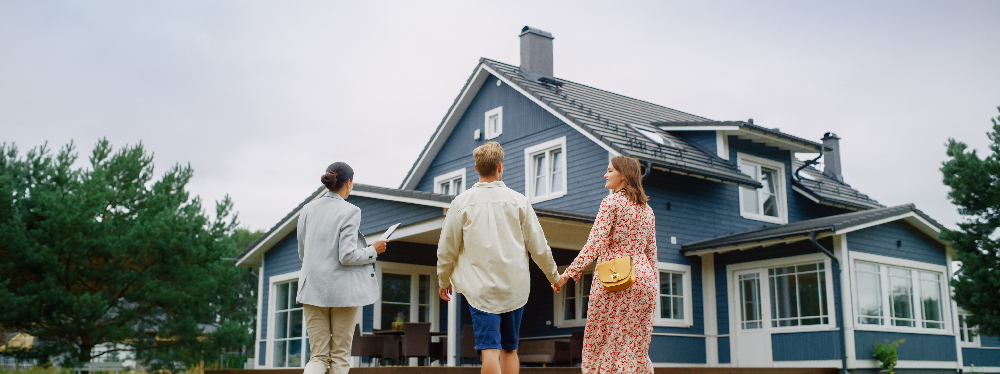The majority of Indians dream of owning a house because it provides evidence of stability and raises one’s social standing. But with house prices rising, a popular debate has emerged on the best age to buy a house. This issue involves personal, financial, and cultural aspects, which makes it complex for potential homeowners.
The best ages for buying a residential property may not be universal, but recognising them can assist people in making sound decisions regarding this vital life investment in India. It is high time to discover the factors that affect the best time to own a home in India.

Buying a House in Your 20s
According to some financial gurus, 20s is the right age to buy a house, and several benefits accrue to the purchaser. Real estate investment in the early stage of your career helps you earn money and avoid the problem of rising apartment prices.
However, buying a house can be challenging, especially if you are still young and in your twenties. Less saving puts one in a very awkward position regarding affording an excellent down payment or even qualifying for a good loan term.
Also, career relocations at this stage of life can be an issue regarding owning a home since young people have yet to settle down, and they can be transferred to different states or provinces due to work.
Tips:
- To overcome these challenges, 20-something homebuyers can use the home loans specially provided for first-time homeowners.
- Affordable properties can also be acquired in developing areas to increase access for more people to own homes.
Buying a House in Your 30s
It is believed that the 30s is the best age to buy a house in India. This decade produces a better paycheck, more savings, and a secure job. Buyers in their 30s are usually financially stronger and in a better professional position to buy better properties and have better mortgage rates. The primary concern for first-time homeowners in their thirties regarding home purchases is how to manage the home purchase with other related financial needs.
Tips:
- When purchasing a home in the specific age of the person’s thirties, they should consider future family requirements.
- Children’s educational requirements and mortgage considerations should be given equal importance.
- Purchasers should also target properties that meet their financial goals for property investment and appreciation during this stage of their lives.
Buying a House in Your 40s
Purchasing property in your 40s has an added advantage in terms of financial strength. Having built your career, you are in a better place to buy the best property and afford reasonable interest rates for your mortgages. Your life experience also comes in handy when selecting the location and type of property to acquire.
The retirement factor remains the most formidable barrier since it is an irrevocable countdown process. Paying for mortgages and saving for the future means performing daring aerial stunts in the financial realm. You must always consider some considerations, such as how homeownership affects your retirement savings.
Tips:
- Concentrate on the fundamental assets and areas where you can locate growth.
- Think about houses that you can modify depending on what you require in the future.
- Smart financing is the key—balance mortgage payments with retirement savings to make your future prosperous.
Read Also: Villa vs Apartment: Which One Should You Choose?
Buying a House in Your 50s and Beyond
It is essential to highlight that the 50s are not considered the best age to buy a house, but they still have some advantages. When people are financially secure, they can make large down payments, which reduces mortgage pressure. They also offer the chance to lock in a retirement destination—that goes hand-in-hand with homeownership.
However, mortgage tenures considerably affect the amount a borrower is expected to pay monthly, and shorter tenures may imply higher payments. Access and health considerations may reduce the options for the type of property to be purchased, and the idea of keeping a big house can sometimes be off-putting.
Tips:
- If buying later in life, the focus is more on proximity and functional comfort.
- Choose single-storey buildings or houses featuring modern amenities.
- It is the best age to acquire a house for dwelling purposes, and it has the added advantage of passing it on as an inheritance.
Case Studies: Real-Life Experiences of Home Buyers at Different Ages
20s:
Ajay (28): “Yesterday, it would have been out of the question for me even to consider buying a home. I am a new IT contractor with only 6 months of experience, but I did it with proper assistance and planning, so don’t let your age or short contact history put you off.”
30s
Seema and Suresh (32 and 35): “We were introduced to a mortgage broker who enabled us to process and purchase our first home. One of us was on probation at the workplace. The broker’s ability to identify the lender saved us considerable time and possibly some bucks since the lender’s mortgage insurance was required.”
40s:
Vineet (45): “Many people in our society purchase their first homes later than others, and that was appropriate for me as well because I had a stable job and was financially ready to make a sizable down payment. Age is not an issue here – financial planning counts.”
50s:
David and Carol H. (52 and 54): “We downsized after the children moved out to college. It was a process of emotions but of reasons, and that also moved me to make a wiser decision. Make sure you consider your long-term needs in your 50s – consider whether the property you’re buying is easy to manage. “
Read Also: Luxury Sea View Flats – Experience Elegance and Comfort
Buying a house is always as unique and individualistic as everyone. We have delved into the real-life stories of buyers in their 20s, 30s, 40s, and 50s and their respective achievements. With this in mind, prospective homeowners should also focus on the ‘right age to buy a house’ when it suits them and their pocket.
So, are you ready to level up? Do not hesitate to contact us! If you are interested in properties under 1 crore or luxurious residential properties in Juhu, let us know! Let your dream of homeownership become a reality, regardless of your age or where you are in life.
FAQs About Ideal Age for Buying a House in India
- What is the right age to buy a house in India?
There is no such age as it depends on the person’s situation and financial condition. However, first-time homebuyers, usually in their late 30s to mid-40s, may find longer loan terms appealing that can provide more extended repayment periods and the possibility of home appreciation.
- Is it OK to buy a 10-year-old house?
When choosing a building to rent or buy, getting the real age of the building you are going for is wise. The most appropriate house to buy is not more than five years old or at most 10 years old. A property older than any specific number of years is not a good agreement to put your money on.
- What is the best age to invest in property?
As with most aspects of investing, there is no right or wrong time to buy a house, but perhaps there is the right time for you, depending on your current financial state. The benefits of investing in your 30s and 40s include lower and more extended terms for repaying loans and more time to increase the value of the invested funds.
- When buying a home, how should one decide on financial capacity?
It suggested that the financial capacity encompasses income, expenses, debt-to-income ratio, credit score, and down payment required to purchase the property without jeopardising the ability to meet monthly mortgage payments and other related costs.
- Can I buy a house in the child’s name?
Attempting to purchase an asset in the name of a minor is only legal when it is in the form of a gift. Even though the minor will become the sole legal owner of the gifted property, he will not have the capacity to care for or take full responsibility for the property.
- Should one take a loan while buying a property?
Taking out a home loan involves several factors, such as current savings and the capability to pay EMIs. Thus, it is much wiser to avoid applying for a larger loan than necessary.







